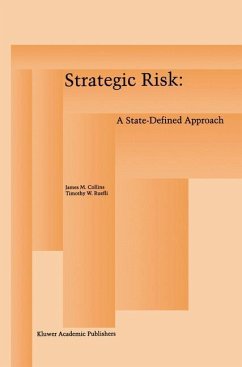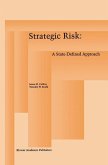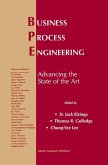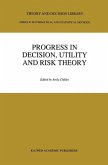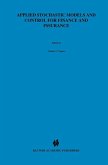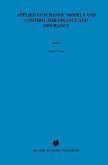Strategic Risk examines a fundamental issue in the field of strategic management and organizations: how to study changes in the competitive outcomes of firms. Collins and Ruefli develop the concept of ordinal risk and extend this concept and its associated measures to the more general framework of state-defined systems. The book makes the state-defined risk methodology more accessible to strategic management researchers, and to social scientists in general. The need for quantitative frameworks with which to analyze the dynamics of strategic management has been apparent for some time. The state-defined risk methodology has the advantage of being based on a common usage definition of risk, and is also based on a mathematically well-behaved function. It permits investigation of the chance of gain while yielding a measure of environmental uncertainty. Finally, the development is general and permits applications employing a variety of performance dimensions over a range of entities in a diversity of contexts. The authors demonstrate the practicability and reliability of this approach by applying the model to mutual funds, large mining and manufacturing firms, and public firms on an industry by industry basis.
Hinweis: Dieser Artikel kann nur an eine deutsche Lieferadresse ausgeliefert werden.
Hinweis: Dieser Artikel kann nur an eine deutsche Lieferadresse ausgeliefert werden.
`The stated purpose of this book is to provide a new approach to assessing risk. The book accomplishes this purpose, and more...To me this book is one of the more useful ones which I have read in a long time. I think the authors have hit upon something very useful.'
C. Leake, University of Maryland for the Journal of the Operational Research Society
C. Leake, University of Maryland for the Journal of the Operational Research Society
`The stated purpose of this book is to provide a new approach to assessing risk. The book accomplishes this purpose, and more...To me this book is one of the more useful ones which I have read in a long time. I think the authors have hit upon something very useful.' C. Leake, University of Maryland for the Journal of the Operational Research Society

